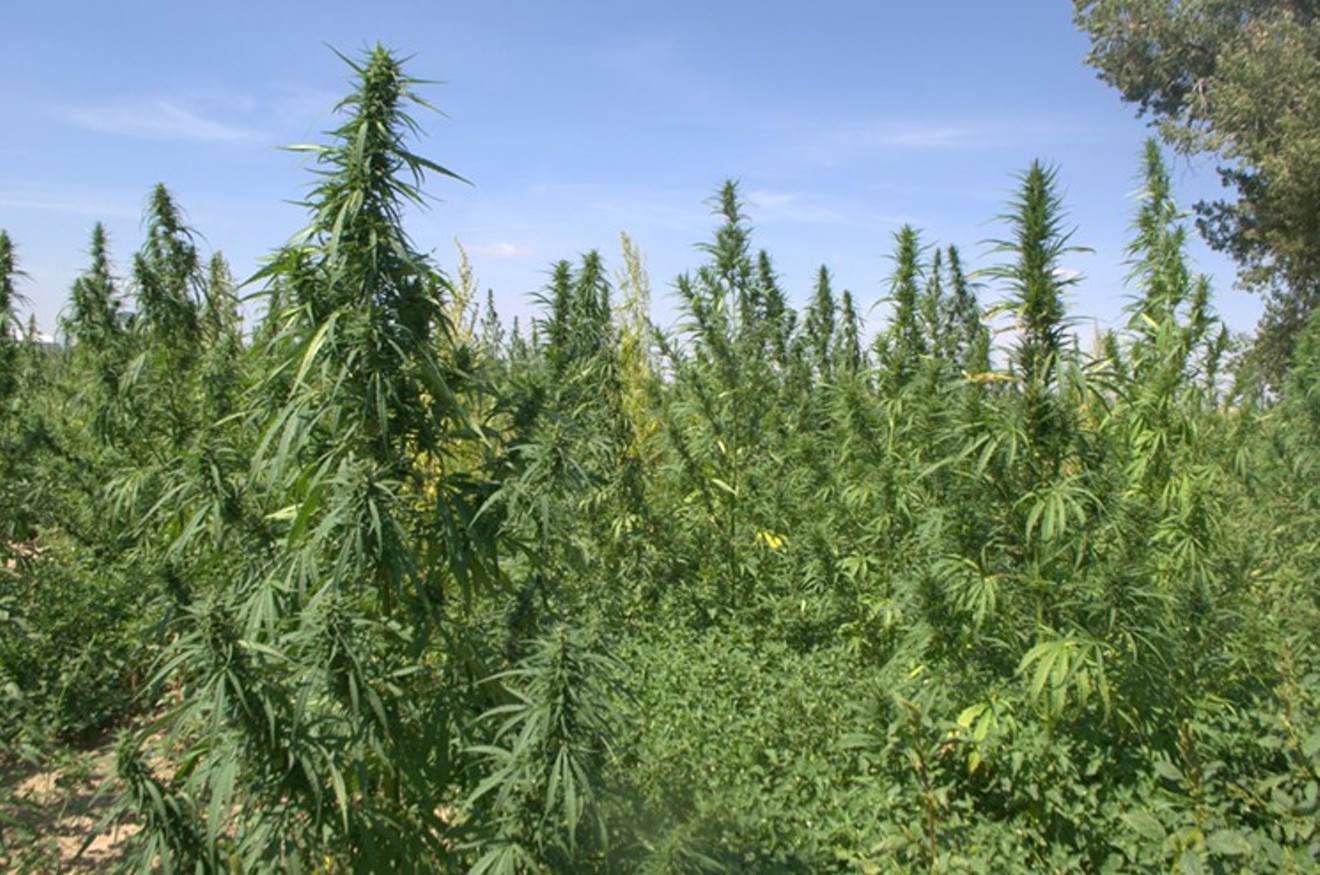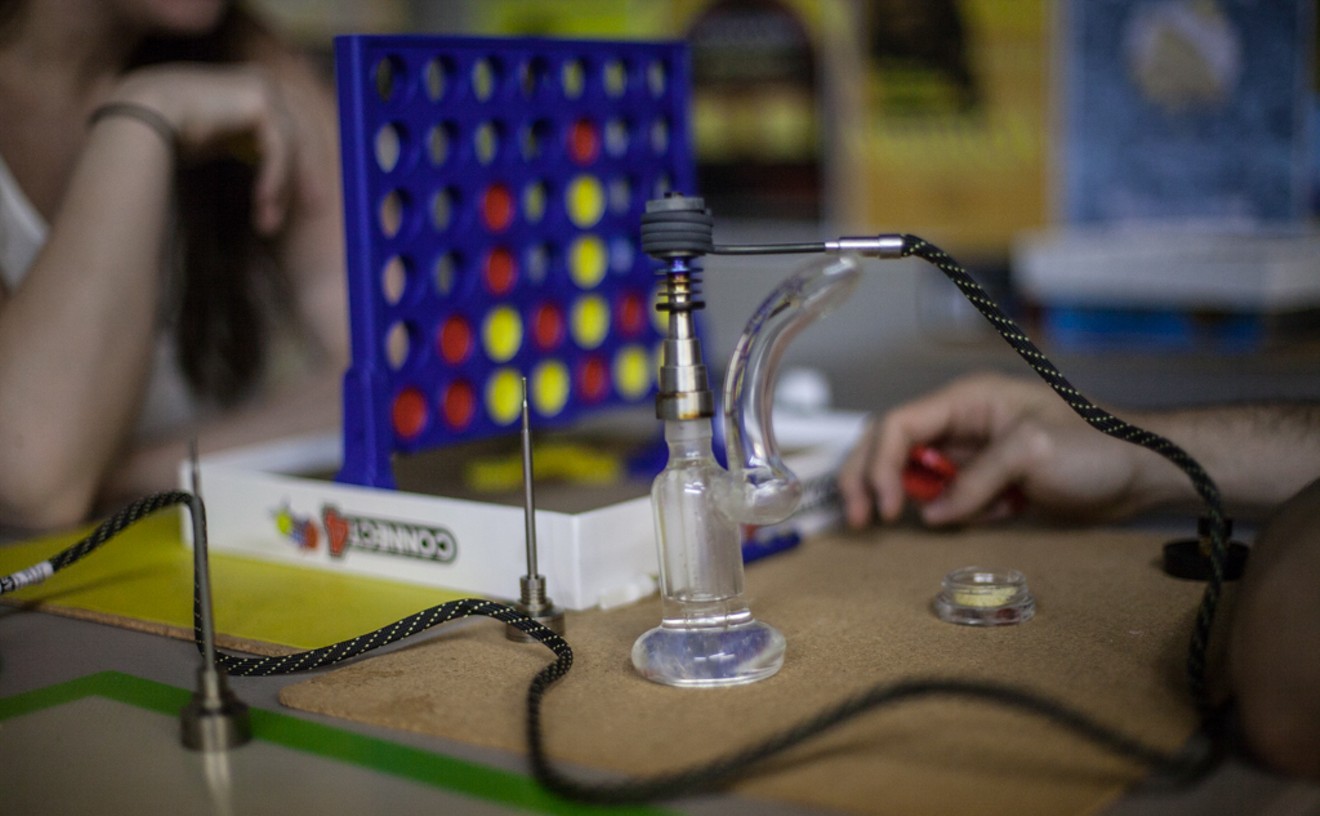The moment the hemp industry has been waiting for finally happened: President Donald Trump just signed the 2018 Farm Bill, legalizing industrial hemp in the United States.
Although highly anticipated after congressional approval last week, full-scale hemp legalization wasn't official until Trump signed the Farm Bill, a set of agricultural policies voted on every five years or so. Spurred by Senate Majority Leader Mitch McConnell, the 2018 bill's hemp provisions catapult the plant's farming opportunities from state pilot programs to a nationwide scale by removing hemp from the Controlled Substances Act and treating it like an agricultural product.
There was no specific mention of hemp when Trump signed the bill, but he called it his "great honor to sign the 2018 Farm Bill, a very special and important piece of legislation."
He added, "It opens new markets for agriculture all over the world."
Industrial hemp farming will soon be regulated by the United States Department of Agriculture, and the USDA's regulations will no doubt be harsher than those for growing cotton, soy or other traditional crops. States that have already legalized hemp research and pilot programs, including Colorado, will continue operating under their own rules until the USDA finalizes its own regulations for the plant, which is expected to take about a year.
State lawmakers view the move as an opportunity for farmers, businesses owners and workers in rural Colorado. Already responsible for the most acreage devoted to hemp farming in the country, Colorado is poised to take advantage of the natural-food companies preparing to enter the market, according to Patrick Rea, founder of cannabis business incubator CanopyBoulder.
No longer required to import most of their hemp-based products from Europe, Japan and Canada, domestic brands can now order hemp from other states without fear of federal reprisal.
"What we're seeing now is former natural food and organic entrepreneurs and executives turn their attention to hemp and CBD products, and turning them into recognizable foods," Rea says. "The supply chain is developing as such that it's now possible to get high-quality CBD isolate and add that to food. So CBD is becoming just another functional ingredient."
How those CBD foods will be regulated by the Food and Drug Administration remains up for debate, however, as the legality of CBD — a non-psychoactive compound found in both hemp and marijuana — and how the DEA will treat it remains murky.
Rea says the number of hemp-related businesses and entrepreneurs coming to CanopyBoulder for advice has increased visibly over the past three years; the would-be companies are interested in making hemp-infused lotions, clothing, drinks and more. With looser regulations and laws, he thinks entrepreneurs from the pot industry now have a chance to take advantage of their experiences.
"There's good opportunity for natural organic food people, but also for those in cannabis," he says. "Folks for the cannabis industry understand consumer tastes around cannabis products, they understand cannabinoid science better, and they may have better supply and relationships."
[
{
"name": "Air - MediumRectangle - Inline Content - Mobile Display Size",
"component": "12017618",
"insertPoint": "2",
"requiredCountToDisplay": "2"
},{
"name": "Editor Picks",
"component": "17242653",
"insertPoint": "4",
"requiredCountToDisplay": "1"
},{
"name": "Inline Links",
"component": "18838239",
"insertPoint": "8th",
"startingPoint": 8,
"requiredCountToDisplay": "7",
"maxInsertions": 25
},{
"name": "Air - MediumRectangle - Combo - Inline Content",
"component": "17261320",
"insertPoint": "8th",
"startingPoint": 8,
"requiredCountToDisplay": "7",
"maxInsertions": 25
},{
"name": "Inline Links",
"component": "18838239",
"insertPoint": "8th",
"startingPoint": 12,
"requiredCountToDisplay": "11",
"maxInsertions": 25
},{
"name": "Air - Leaderboard Tower - Combo - Inline Content",
"component": "17261321",
"insertPoint": "8th",
"startingPoint": 12,
"requiredCountToDisplay": "11",
"maxInsertions": 25
}
]












